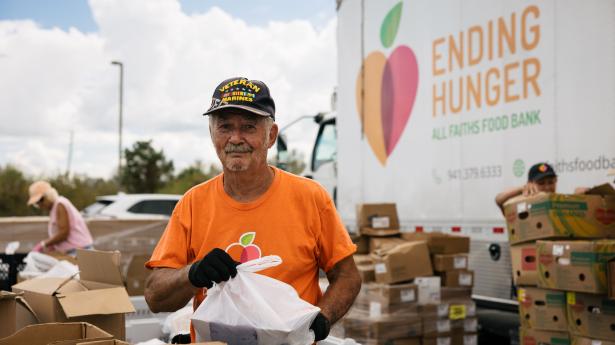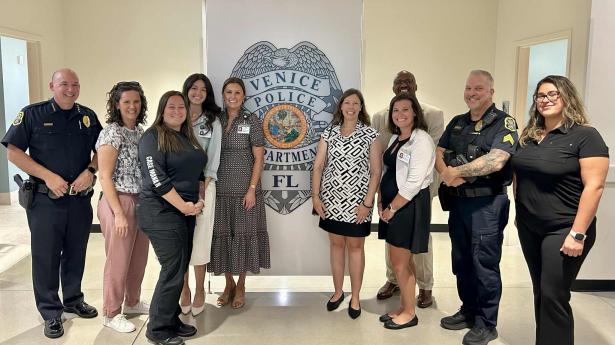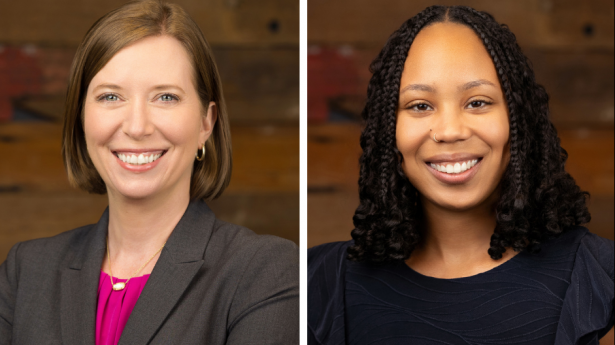Feeding Increased Need
“Food is a basic need,” says Sandra Frank, CEO of All Faiths Food Bank. “If you can’t eat, you really can’t do anything.”
Organizations like All Faiths were already busy feeding our region before the COVID-19 pandemic. But the public-health crisis and its economic fallout have caused even more people to seek help putting food on the table.
Time to Respond
“We were absolutely slammed,” says Frank of the spike in demand caused by the crisis. “It felt like a physical hit to the organization.”
People who’d never needed services from All Faiths before were now lining up for help. A distribution event at Ed Smith Stadium, for example, drew thousands of people. Demand for food assistance increased as much as 45% in the spring and has now stabilized at about 35% higher than last year’s numbers.
That’s why the nearly $200,000 in grants that All Faiths Food Bank has received through the COVID-19 Response Initiative, a joint effort of Gulf Coast Community Foundation and Charles & Margery Barancik Foundation, has proven so crucial. (Special thanks to William G. and Marie Selby Foundation and Truist Charitable Fund, whose $85,000 and $20,000 gifts, respectively, were part of that total funding.)
The funds helped All Faiths source and purchase food when its traditional supply chains and food donation channels were impacted by the pandemic. Some of that food was purchased from local farmers, who faced struggles of their own when restaurants and schools shut down. All Faiths also used grant funding to distribute meals directly to furloughed restaurant workers.
Besides the initiative grants, the food bank received around $300,000 in additional donations from Gulf Coast donors who followed the foundation’s lead. That’s a huge help, says Frank, considering that All Faiths expects to see increased need into 2021.
“The fact that Gulf Coast and the Barancik Foundation created this response fund signaled to the entire community that this is serious, this is severe, and this is real,” says Frank. “They were the leaders in letting the community know that it was time to respond.”
A New Level of Poverty
At the beginning of 2020, Meals on Wheels of Sarasota was running 32 routes a day, the largest of which visited 28 people. Now it’s doing 37 routes a day, with some serving as many as 50 people.
That’s led to increased costs for the organization, where money spent on food, packaging, and payroll all have increased dramatically since March. A $75,000 grant from the COVID-19 Response Initiative helped Meals on Wheels keep responding to these new needs.
“We could just watch the money flowing out of here at the same time the demand had just exploded,” says Marjorie Broughton, executive director of Meals on Wheels of Sarasota. “There were days when we would increase the number of meals for the next day by 100. The grant enabled us to step forward and continue to say ‘yes’ to people.”
The organization is traditionally associated with homebound seniors, and Meals on Wheels definitely serves that clientele. But it also delivers meals to mentally and physically disabled clients, pregnant women and new mothers, and veterans. And it’s now serving almost 60 families since the pandemic began.
In addition to dropping off 1,100-calorie meals, Meals on Wheels has been supplying some clients with everything from cleaning supplies and diapers to pet food. “It has been a new level of poverty,” says Broughton. “And the numbers aren’t going down.”
The $75,000 grant, plus additional funds the organization raised after that infusion of cash, makes it possible for Meals of Wheels to keep stepping up to help. “We have clients who call in tears saying, ‘Thank you, because my family couldn’t be here, I can’t go anywhere, and if it weren’t for you I would have starved,’” says Broughton. “We’re just a little organization, so when someone steps forward and says we hear that you need us and hands you a check for $75,000, it’s huge.”
Maintaining a Safety Net
Harvest House works with homeless families, veterans, young adults, and adults with a history of incarceration and substance abuse. “The people we serve are our most vulnerable neighbors,” says CEO Erin Minor. “And they always seem to be disproportionately affected by disasters or crises.”
A tangible sign of that was the sizable uptick in need that Harvest House saw earlier this year at its food pantry. “We went from serving about 150 to 170 families a week to almost 300 a week,” says Minor.
Harvest House used half of a $50,000 grant it received through the COVID-19 Response Initiative to purchase food for distribution, along with protective equipment for its volunteers and employees. “Harvest House really is a social safety net outside of a global pandemic,” says Minor. “And then when something like this hits, we end up being even more so for more people.”
Grant funding was also used for various technology and safety needs on the Harvest House campus, allowing the nonprofit to keep working through all the new challenges. “We were so grateful to see how quickly Gulf Coast and the Barancik Foundation pivoted to meet the needs of local nonprofits,” says Minor. “I think there’s been a collective exhale from CEOs in the nonprofit world here. There are just so many wonderful philanthropists in our community.”



